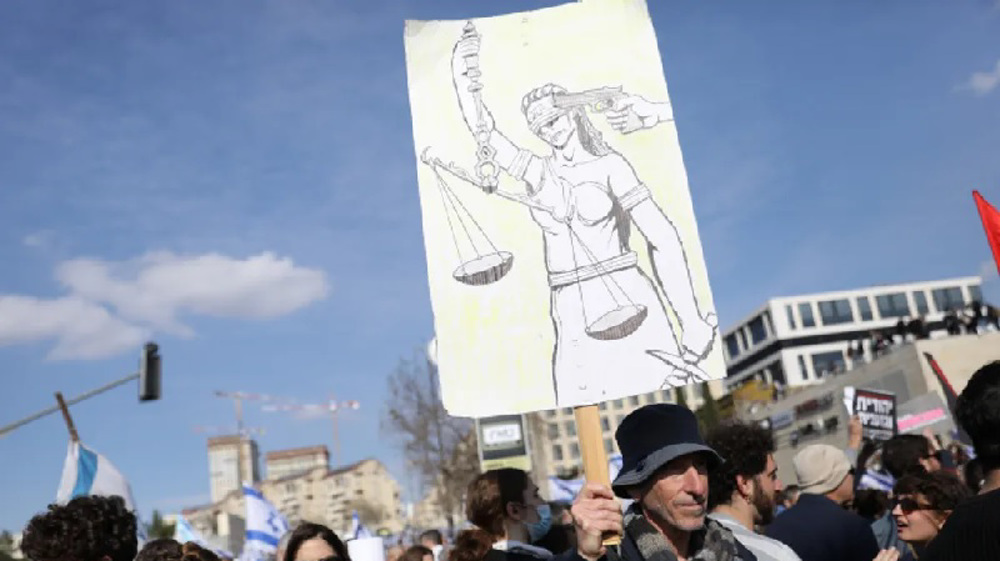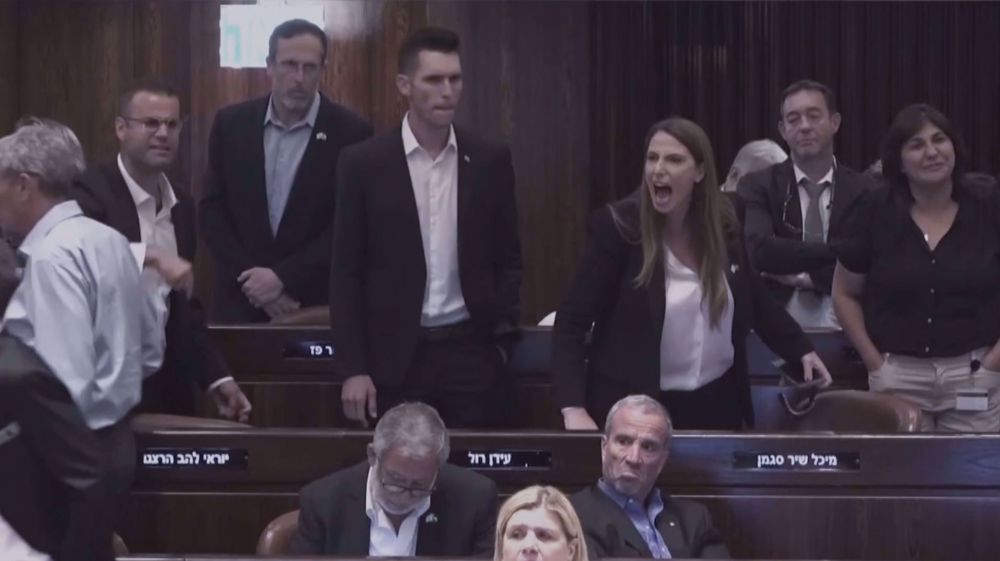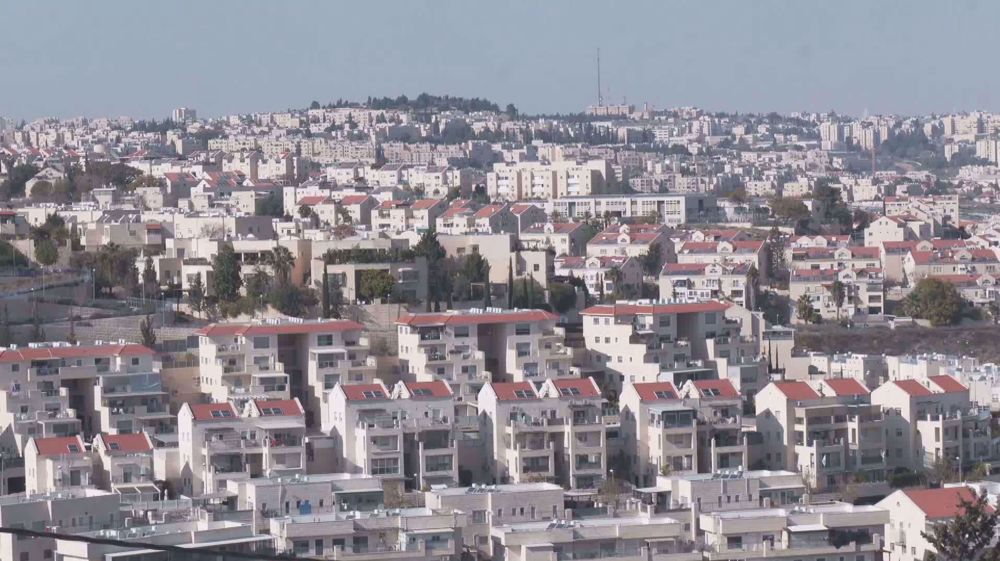Senior Israeli officials discuss regime collapse to draw ‘action plans’
Hundreds of former senior Israeli military officials have warned of the collapse of the Israeli regime, amid mass protests against Prime Minister Benjamin Netanyahu's far-right cabinet and its extremist policies.
The ex-officials held an emergency conference on Saturday to discuss ways to protect the Supreme Court, the military, and the police in case of the regime’s collapse, the Israeli daily newspaper Yedioth Ahronoth reported.
According to the newspaper, participants discussed action plans to defend the Supreme Court, the military, and the police ‘in crisis situations within the Israeli entity, “particularly if the Supreme Court annuls government decisions, resulting in an unprecedented constitutional crisis in Israel.”
The conference was attended by personnel from Israeli intelligence agencies Mossad, Shin Bet, police, and the Israeli military, including major generals, brigadier generals, and senior commanders, it stated.
The latest development comes amid calls for overturning a controversial law that restricts judicial power after Israel's parliament approved the first bill of the plan last week.
The new legislation, known as the reasonableness bill, was approved in a tumultuous session on Monday, which resulted in the opposition legislators walking out in protest and shouting "shame".
It removes the ability of the Supreme Court to strike down the far-right cabinet decisions deemed unreasonable.
Monday's bill was passed as part of a broader plan to overhaul the judiciary.
Additional plans for reform include major changes to the basic laws in an attempt to reshape the balance of power between the Knesset, Israel's Parliament, and the High Court of Justice, splitting the Attorney General's role and limiting the ability to petition against ruling cabinet actions.
Netanyahu introduced the plan in January, triggering months of unprecedented anti-regime protests, with critics describing the plan as a threat to the independence of the courts by the prime minister, who is on trial on graft charges.
Those in favor of the scheme allege that it introduces some balance in the power that is wielded by the different branches of the regime. Its opponents, on the other side of the ledger, say upon ratification, the plan would empower the ruling class to act in a more authoritarian fashion.
Faced with raging protests as well as a wave of mass industrial actions in support of those protests, Netanyahu announced a pause in late March in his drive to get the plan approved by the Knesset.
The judicial overhaul plan originally sought to render the Supreme Court incapable of striking down politicians’ decisions.
Pro-Netanyahu lawmakers have indicated that the new bill would be a far softer version of previous proposals that sought to almost totally roll back the Supreme Court’s power to rule against the executive. The opposition, however, says the new bill would still open the door to corruption.
VIDEO | Press TV's news headlines
VIDEO | Chaos by design
Banned US thermal bombs 'vaporized' thousands of Gazans: Report
Leader hails Iranians for disappointing enemies with multimillion rallies
VIDEO | 'Land of Angels' sweeps 44th Fajr Film Fest. awards
Iran dismisses claims of detainee rights violations as ‘psychological warfare’
VIDEO | The business of humanity
VIDEO | 47th anniversary of Islamic Revolution marked in Russia














 This makes it easy to access the Press TV website
This makes it easy to access the Press TV website